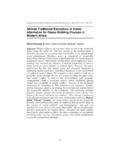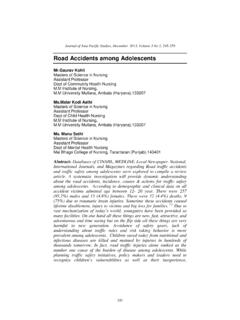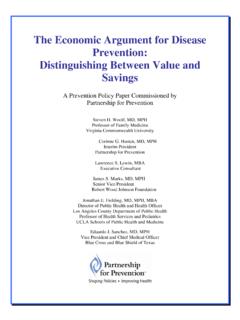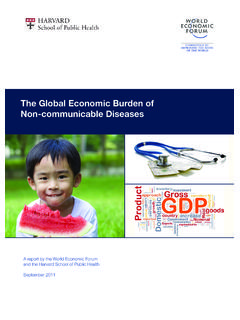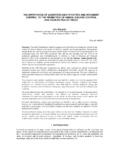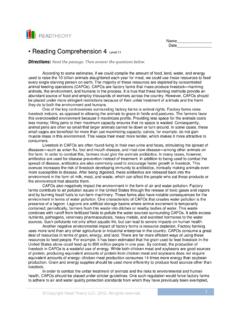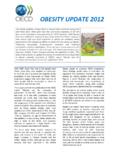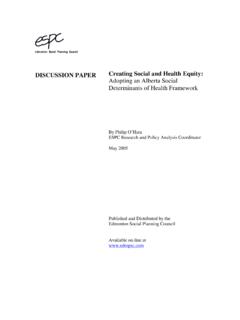Transcription of African Traditional Education: A Viable Alternative for ...
1 Journal of Alternative Perspectives in the Social Sciences ( 2010) Vol 2, No 1, 136-159 136 African Traditional Education: A Viable Alternative for Peace Building Process in Modern Africa Okoro Kingsley, N, Ebonyi State University (Abakaliki, Nigeria) Abstract: Violent conflicts and war have taken its toll in the world with Africa being the worst hit. This has created in the modern minds a mentality construct to accepting that war/conflict is an indispensable social phenomenon. Therefore, peace is considered as inseparably intertwined with war. Hence peace is delineated into two realms-negative and positive peaces. Interestingly, positive peace which emphasizes peace building has attracted the attention of modern scholarship as being a Viable option for peace initiative in modern Africa.
2 However, this paper underscores the fact that human greed and structural ineptitude in addressing human needs have contributed immensely in the exacerbation of conflict in modern Africa. The argument is that conflict is built into a particular society through the way it is organized. Thus this paper notes that social conflict is tied to the socio-political and economic arrangements within a particular society. Hence Traditional African society was susceptible to violent conflict. However it has an inbuilt mechanism to controlling it. This instrument was education. Notably, African education aimed at developing the total man and making him or her responsible member of the community.
3 The curricular includes physical, mental, spiritual and moral development of the citizens. The thrust of the moral education was solidarity. This concept is defined in many African societies by different terms. Some of these terms are Ibuanyi danda, Ubuntu Ujamaa, our survey of most African society reveals the fact that socio-political philosophy of Traditional African society hinge on the concept of social solidarity and belongingness , and such was ingrained in every citizen from cradle. Regrettably, this social philosophy has been neglected in the modern Africa. Therefore this paper submits that if peace must return to Africa, she must re-introduce or incorporate her moral values into her educational system, with certain modifications to meet the contemporary demands.
4 Okoro Kingsley, Ebonyi State University (Abakaliki, Nigeria) 137 1. Introduction Conflicts of all sorts have ravaged the modern African society and consequently created in the modern minds a mentality construct that war/conflict is an indispensable social phenomenon. Thus, conflict is considered as universal, timeless and eternal. This assumption gave birth to Heraclites submission thus, our very experiences presupposes conflict in its generation, our knowledge, apart from its apriori categories is based on such conflict, our learning about ourselves, others and reality, our growth and our development and our increasing ability to create our heaven or hell, comes through conflict ( Wallerstein 1974:28).
5 Collorray to the foregoing, peace is considered in most modern literatures as an utopia or at best as an inseparable social variable with war or conflict (Okoro, 2009:75). Peace therefore is regarded as converse of war; hence we read in modern literatures that war and peace are two sides of the same coin (Ibeanu, 2007:3). Against this backdrop, peace is generally defined as the absence of war and as such world peace is conceived in relation to war (Okoro, 2008:8). Notably, ones epistemic background affects ones definition, dispositions and considerations in any social discourse. Thus our background understanding of peace as a converse of war has affected adversely our approach, interest and method of peace making and peace building in the modern society.
6 However, our attitude, definition and approach in the achievement of peace notwithstanding, peace remain one of the deepest, most sublime and most universal aspirations of man in whatever era of human history (Mary and Christopher, 2006:35). This human aspiration to live in a world devoid of conflicts and war has continued to whet, define and redefine the concept of peace to bringing it to terms with this sublime aspiration. Thus, in technical peace studies, peace has been delineated in to two as negative and positive peace Positive peace is seen in the light of efforts towards building of peace and non-exploitative social structure, with a substantial component of justice and human right (Mary and Christopher, 2006:35).
7 In this notion, peace stands in African Traditional Education: A Viable Alternative for Peace Building Process in Modern Africa 138 opposition to the old definition of peace as the absence of war. Positive peace according to Gultang Johan, a professor of peace studies, is a social condition in which exploitation has been eliminated and overt violence has ceased, including structural violence (Mary and Christopher, 2006:36). This definition substantiates the understanding of peace in the ancient cultures of Hebrew and Greek. In the Hebrew culture peace is considered as holistic as it embraces all facets of human existences (Gerhard 1958:10).
8 Peace in this culture connotes security and as such the word shalom becomes a demeanor of impregnable fortress (Okoro, 2008:295). In the Greek culture, Irene, which connotes human linkage assumes a defining paradigm of peace. Hence, peace was understood in this culture as a state of order and coherence and not merely the absence of war (Bainton 1982:17). In this culture peace symbolizes but not limited to prosperity. Bainton (1982) represents the relationship between peace and prosperity aptly thus, ..if peace were not identical with prosperity, at any rate peace begat prosperity and was commonly accompanied in artistic representation in vivid terms as the cornucopia (17).
9 Mary and Christopher (2006), sustain this Greek definition of positive peace as they write, The Greek Irenic or Irene, which connotes harmony and justice, the Arabic salam and the Hebrew, shalom have more complex meaning, connoting well-being, wholeness and harmony. The Sanskrit equivalence suggests spiritual tranquility (36-37). These cultures present the idea of positive peace, which does not contain itself with the absence of war ideology but includes social security, well-being of individuals and community, solidarity, order and cohesion in any given society. Despite the human definitions and aspirations for peace and peaceful environment, it still beats human imaginations that wars and conflicts still dot the contemporary socio-political history, especially Africa.
10 This work therefore made a striking discovery that our modern understanding of peace as the absence of war, human greed and structural ineptitude are all contributory factors in the contemporary upsurge of violent conflicts in Africa. Thus the argument is that conflict is built into a particular society through the way it is structured or organized (Ademola Okoro Kingsley, Ebonyi State University (Abakaliki, Nigeria) 139 2007:36). Against the backdrop of this assumption, this paper notes that social conflict is tied to the socio-political and economic arrangements within a particular society. Thus injustice, poverty, disease, exploitations inequality etc, breed social conflicts.
